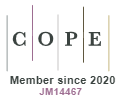Analysis of The Brazilian Scientific Production about Sustainablity From 2008 To 2011
DOI:
https://doi.org/10.5585/geas.v3i1.80Keywords:
Sustainability, bibliometrics, academic production.Abstract
This article purports to conduct an evaluation of the scientific literature on sustainability, from what has been produced within the electronic library SPELL (Scientific Electronic Library Periodicals) in the period from 2008 to 2011, totaling 99 articles. A bibliometric research was carried out by adopting an exploratory perspective of a mixed imprint: qualitatively, regarding the literature and content analysis to categorize the units of meaning, and quantitatively, concerning the descriptive statistics. The main results of the research were the strong growth in the number of papers published on the subject in 2009 (33) compared to 2008 (2), this percentage having increased from 2% to 33% with a slight decline in 2010, but resumed in 2011 up to a 40% average of the total sample; it was possible to recognize a considerable amount of universities and colleges - thirty-two (32) IES in four years of publications of articles in scientific papers on sustainablity. Still, it was found a concentration of articles among 10 IES articles with 46% of the total. Among the total of 99 articles approaching several topics, they were all summarized into the most relevant topics on sustainability with an emphasis on “Environmental Management and Eco efficiency”, followed by the theme 'Corporative Social and Environmental Responsibility, Management and Innovation Models' with 17 productions. There was also a group of assorted topics which figured in the scenario of this work and suggest further research. In addition, we present the 16 most cited authors from the 99 surveyed articles in which one might observe a blend of national and international authors. Finally, the most relevant papers based on the number of mentions were systematically recorded. It is believed that the systematization of the major works in the field of sustainability can be helpful in advancing and maturing of future work on this topic.
Downloads
Downloads
Published
How to Cite
Issue
Section
- Abstract 435
- PDF (Português (Brasil)) 245












